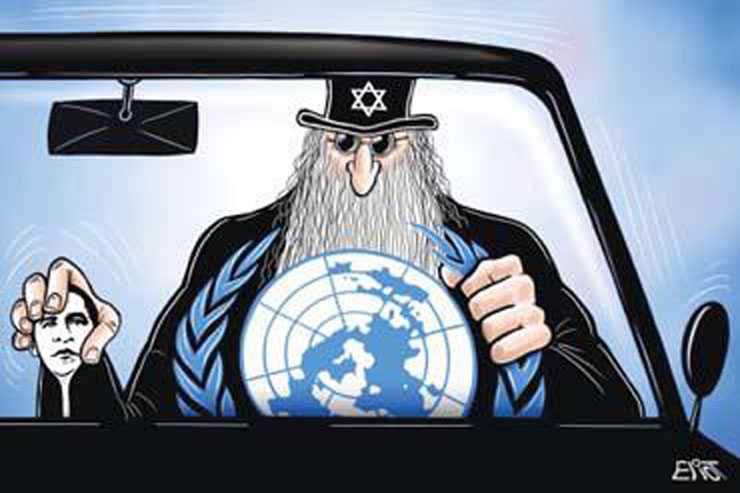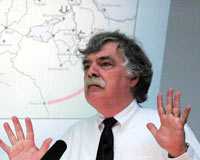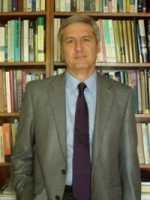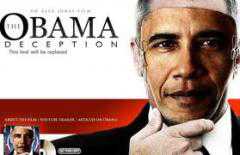
Tag: deception
-

London Conference: Prejudice, Deception, and the Armenian Question
Dear Sir / Madam,
You are kindly invited to attend our annual conference on the 4th February 2011 on the subject of “Turkish- Armenian Relations”, details of which are attached.
The guest speaker, Prof Justin McCarthy specializes in the social and demographic history of the Modern Middle East, particularly Turkey and the Ottoman Empire. He is presently Distinguished Professor of Arts and Sciences and Distinguished University Scholar at the University of Louisville.The event will be chaired by Professor Şevket Pamuk who is the Chair of Contemporary Turkish Studies at the European Institute, London School of Economics and Political Science. He is a leading economic historian of the Ottoman Empire, the Middle East and modern Turkey.
This is the fifth conference in the series and has been organised in the memory of 34 Turkish diplomats and other innocent victims who were murdered by various Armenian terrorist groups between 1973 and 1985. The aim of these conferences is to promote mutual understanding and discuss issues concerning Turkish-Armenian relations both recent and historic on an academic platform.
We very much hope that you will be able to attend the conference.
Yours sincerely,
FTA UK
——————————————————————————————————————
You are kindly invited to attend an evening conference entitled
‘TURKISH – ARMENIAN RELATIONS’
Friday, 4th February 2011, 6 pm for 6.30 pm
Venue:
Sheikh Zayed Theatre,
London School of Economics,
New Academic Building,
Lincoln’s Inn Fields,
London WC2A 2AE
GUEST SPEAKER
Prof Justin McCarthy
“Prejudice, Deception, and the Armenian Question”
For those who study the troubled history of relations between Turks and Armenians, the question naturally arises, “How could so many have been so wrong?” Why did Europeans and Americans at the time, and still today, believe a story of persecution that is demonstrably wrong? The answer lies in ignorance, prejudice, and deception. Ignorance made politicians and editors, then and today, believe whatever fit their prejudices. And prejudice caused them to ignore the facts before them. Instead, they accepted the often deliberate falsehoods spread by Armenian rebels and their supporters. This presentation offers examples of the deceptions that lie behind what is commonly believed of the Armenian Question.
CHAIRED BY
Prof Şevket Pamuk
* * * * *
Organised by
THE FEDERATION OF TURKISH ASSOCIATIONS UK
The Federation of Turkish Associations UK (FTA UK) is an umbrella organization consisting of 16 Turkish associations, representing approximately 300,000 British Turks and Turkish citizens in the UK. We are following closely any developments and issues concerning our community in this country and we make representations at governmental and/or local levels. We also serve as a broad platform reinforcing and building on the cultural and economic bridges between Turkey and the UK.
www.turkishfederationuk.com
* * * * *
Non – Members Welcome
Attendance is free but by registration only
Please register at
[email protected]. uk
or telephone / text 07788 908 803
* * * * *
Prof Justin McCarthy

Justin McCarthy received a Ph.D. in Near Eastern history from U.C.L.A. in 1978 and a Certificate in Demography from PrincetonUniversity in 1980. He is presently Distinguished Professor of Arts and Sciences and Distinguished University Scholar at the University of Louisville. Professor McCarthy specializes in the social and demographic history of the Modern Middle East, particularly Turkey and the Ottoman Empire. His books include Muslims and Minorities, Death and Exile, The Population of Palestine, TheOttoman Turks, The Ottoman Peoples and the End of Empire,Population History of the Middle East and the Balkans,Who Are the Turks?(with Carolyn McCarthy), The Armenian Rebellion at Van(with Esat Arslan, Cemalettin Taşkiran, and Ömer Turan), and Turkey and the Turks (with Carolyn McCarthy).His book on the image of Turks in America, The Turk in America, was published in 2010. He has also written a number of articles on Middle Eastern, Balkan, Turkish, and Ottoman topics. As a historical cartographer, he has produced the Middle Eastern map series for the Middle East Studies Association and the U.S. Department of Education, as well as maps for publications.He has lectured in Turkey, Azerbaijan, Britain, Germany, Austria, the Netherlands, Israel, Bosnia, and Saudi Arabia, as well as in the United States and Canada. In 2005 he was invited to address a special session of the Turkish Grand National Assembly. Rotary International gave him its Paul Harris Award. He has held a Senior Research Fellowship from the U.S. National Endowment for the Humanities, a National Needs Postdoctoral Fellowship from the National Science Foundation, a Fulbright-Hays fellowship, anInternational Research and Studies Program grant from the U.S. Department of Education, and other grants and awards. Professor McCarthy has served on the Boards of the Institute of Turkish Studies, the Turkish Studies Association, and the International Congress for Asian and North African Studies, as well as the advisory boards of various organizations.
Prof Sevket Pamuk 
Professor Şevket Pamuk is Chair of Contemporary Turkish Studies at the European Institute, London School of Economics and Political Science. He is a leading economic historian of the Ottoman Empire, the Middle East and modern Turkey. He is the author of The Ottoman Empire and European Capitalism 1820-1913: Trade, Investment and Production (Cambridge University Press, 1987); A Monetary History of the Ottoman Empire (Cambridge University Press, 2000) and jointly with Roger Owen, A History of the Middle East Economies in the Twentieth Century (I.B. Tauris Publishers and Harvard University Press 1998). A collection of his articles on the Ottoman economy recently appeared asOttoman Economy and Its Institutions (Ashgate-Variorum, 2008). After attending high school in Istanbul, Pamuk graduated from Yale University and obtained his PhD. degree in Economics from the University of California at Berkeley. He has since taught at various universities in Turkey and the United States including Ankara, Pennsylvania, Villanova, Princeton, Michigan at Ann Arbor, Northwestern and beginning in 1994 at Bogaziçi (Bosphorus) University, Istanbul as Professor of Economics and Economic History. Şevket Pamuk was the President of the European Historical Economics Society, an association of European economic historians, has been a member of the Executive Committee of the International Economic History Association, a member of the Standing Committee on the Humanities of the European Science Foundation and is a member of the Academy of Sciences of Turkey. He serves on the Editorial Boards of various academic journals including European Review of Economic History and The Journal of Economic History.
Supported By Turkish Forum World Turkish Alliance UK
-

Wikileaks – Deception and Disinformation?
 Contributor: Michael D. Scott
Contributor: Michael D. Scott
SUMMARY: WIKILEAKS – DECEPTION AND DISINFORMATION?
Perhaps more attention than is deserved is being given by government and the media to the release, by Wikileaks, of alleged “secret” diplomatic communications.
In this “letter to the editor” on the Wikileaks matter to Stratfor.com (Strategic Forecasting, Inc., a company comprised of intelligence professionals that uses human intelligence and other sources to provide unique, independent, non-ideological analysis of political, economic, and military developments), I suggest that the Wikileaks disclosures may be classic “deception and disinformation” tradecraft.
As discussed in the article, this argument is bolstered by comments in a Wall Street Journal op-ed on December 1, 2010 by a former Reagan administration official saying that release of these documents hurts the authoritarian regimes – friend and foe – that the U.S. seeks to influence far more than it adversely affects U.S. interests.
Interestingly, the Wikileaks principal is (according to numerous commercial news sources) hiding in London of all places. The U.K. has an Official Secrets Act that permits prosecution of those who disclose classified information, even such information obtained legally. Indeed, the U.K. and other nations have criticized the U.S. for not adopting such a law. (It probably would be impossible for the U.S. to adopt such a law in light of First Amendment jurisprudence.)
These comments apply to the most current Wikileaks document release as well as previous releases. I publish this here because access to Stratfor requires a subscription.
WIKILEAKS – DECEPTION AND DISINFORMATION?
December 2, 2010
It seems, perhaps, that, as in Shakespeare’s Hamlet, “the (government and
media) doth protest too much” regarding disclosures by Wikileaks of alleged
sensitive information. There has been insufficient consideration of the possibility that these disclosures are, at least in part, deliberate, and represent classic “deception and disinformation” tradecraft.The U.S. intelligence community was crippled by the scandals and abuses of the 1960s and early 1970s, culminating in the community’s tangential involvement in Watergate during the Nixon administration. Subsequent administrations were forced to operate with their intelligence hands tied. The U.S. (and, by extension, other Western nations) were unable to engage in activities – however necessary or desirable, albeit unsavory – that offended the sensibilities of domestically free societies effectively governed by the rule of law. These politically correct constraints proved unrealistic in a world largely governed by Hobbes’ “state of nature.”
In 1982, Margaret Thatcher, recalling Churchill’s wisdom that, “the truth is so valuable it is often protected by a bodyguard of lies,” resurrected a vigorous deception and disinformation capability in the U.K. intelligence community. (This initiative, not surprisingly in the U.K., quickly became known as “dee dee.”) She successfully convinced Ronald Reagan and the U.S. intelligence community to develop comparable expertise. After all, it is often possible to achieve indirectly that which cannot legitimately be achieved directly.
As Paul Nitze observed in an op-ed piece in the Wall Street Journal yesterday (December 1, 2010), the documents disclosed by Wikileaks damage weak, authoritarian regimes much more than they damage the U.S. (to the extent that they damage the U.S. at all). Most of the Wikileaks documents simply confirm what any reasonably knowledgeable international affairs analyst already knew. In his concluding paragraph, Nitze – for the record – condemned the Wikileaks disclosures, but his condemnation rings hollow.
The possibility that the diplomatic cables disclosed by Wikileaks are simply part of a sophisticated disinformation campaign – particularly in the U.S., where “leaks” of sensitive information on domestic matters by politicians has become a legitimate public policy debate technique – should not be summarily dismissed.
© Michael D. Scott 2010.
, 2.12.2010
-

ARMENIAN TERRORIST SASSOUNIAN IS DENIED PAROLE
ATAA ASSURES CALIFORNIA PRISON PAROLE BOARD DENIES PAROLE TO ARMENIAN TERRORIST SASSOUNIAN
On August 4, 2010, the California Prison Parole Board denied Armenian terrorist, Hampig Sassounian, parole. The Assembly of Turkish American Associations (ATAA), representing over 500,000 Turkish and Turkic Americans nationwide, participated in the hearing, submitting a Statement in Opposition to the Parole of Sassounian. Click here to read the ATAA’s statement and supporting documents.
The ATAA actively participates in judicial processes to support the conviction and sentencing of terrorists with a view toward achieving complete justice for the victims. ATAA is pleased that Sassounian was denied parole, as he and his followers continue to be a threat to the public. ATAA will appear at Sassounian’s next parole hearing in 2013 to make sure that he remains behind bars for life.
ARMENIAN TERRORIST HAD TRIED TO SNEAK TO LEBANON
Sassounian is serving a life sentence for the racist and political assassination of Turkish Consul General Kemal Arikan on January 28, 1982 in Los Angeles. The first attempt on Mr. Arikan’s life occurred on October 6, 1980, when Hampig Sassounian’s older brother, Harout Sassounian, fire-bombed the Consul General’s home. Harout Sassounian was convicted of the attempted killing.
Two years later, Hampig Sassounian and his accomplice Krikor Saliba massacred Mr. Arikan just outside of his residence as he waited in his vehicle at a traffic light. Their reason was that they hate Turks. LAPD captured Sassounian shortly after the killing. Sassounian’s father stated on national television that he was glad that a Turk was killed. LAPD searched Sassounian’s automobile, seizing a .357 caliber bullet and a one-way airline ticket from Los Angeles to Beirut. LAPD also searched Sassounian’s home, where they seized a gun receipt, pistol targets, and a manifesto of “The Armenian Youth Federation.”
TERORIST CAMPS ROUTED OUT
Federal authorities connected Sassounian and Saliba to the Justice Commandos of the Armenian Genocide (JCAG) terrorist group, which recruited members from the Armenian Youth Federation. JCAG serves as the militant wing of the Armenian Revolutionary Federation (ARF) political party in Armenia, whose foreign agent in the United States is the Armenian National Committee of America (ANCA). ANCA is represented in California by ANC Western Region in Glendale. Hampig Sassounian bears an ARF tattoo on his chest. It should be noted that Sassounian’s partner, Saliba, fled to Beirut shortly after the assassination, in response to which Turkish and Israeli intelligence joined efforts to uproot Armenian terrorist camps in Lebanon.
ATAA’S VICTIM IMPACT STATEMENT: A FIRST
The ATAA’s statement was the first appearance of a Turkish American organization at a parole hearing of an Armenian terrorist. In 2000, the ATAA also appeared at the criminal sentencing of Mourad Topalian, the former chairman of ANCA who was convicted of weapons and explosives charges which federal authorities connected to at least four terror attacks on American soil.
NAMELESS, FACELESS WARRIORS BEHIND THE SUCCESS STORY
On behalf of the ATAA Board of Directors, I thank ATAA Western Region VP Maria Cakırağa for submitting the ATAA’s statement on behalf of the citizens of California. I thank ATAA legal intern, Lale Eskicioğlu, and research assistant, Duygu Ozcan, for their tireless research and technical support.
The LAPD required the provision of bullet-proof vehicles, followed and lead by several secret service vehicles during the trip to San Luis Obispo Prison, indicating the threat level of modern Armenian political violence.
Though Sassounian’s lawyer, Michael Geragos degraded ATAA at the hearing, Parole Commissioner Peppler expressed that the ATAA’s Statement provided a much necessary history of Armenian terrorism and political violence.
I take special note here that based on ATAA’s information and belief, the Armenian Republic submitted to the Parole Board a statement in support of Hampig Sassounian, including providing him Armenian citizenship and a residence in Armenia. By doing so, the Armenian Republic supported terrorism and undermined rapprochement.
DINK MARTYRIZED, ARIKAN FORGOTTEN
On behalf of Turkish Americans nationwide, ATAA expresses its deepest condolences and respects to Mrs. Arikan and her family for their loss and for their sacrifices. We have not forgotten you. You will always be in our hearts.
Respectfully submitted,
Gunay Evinch
President
Assembly of Turkish American Associations———————–
PS: For exhibits provided to the parole board, please log on to www.ataa.org.
PPS: The paragraphs heading above added for emphasis by the columnist; they do not appear on the original letter.
-

ANATOLIAN LIONS : TURKISH BRIGADE OF THE KOREAN WAR
The heroic but unpublicized role of the Turkish troops during the 1950-53 Korean War is not fully acknowledged by most Western historians and public, although the Turkish Brigade named “Anatolian Lions” (composed of the 241st Infantry Regiment with three infantry battalions, a motorized artillery battalion with three artillery batteries) were awarded the highest honorable citation of the U.S. Army for saving the U.S. Eighth Army and the IX Army Corps from encirclement and the U.S. 2nd Division from total annihilation. In this legendary effort, the Turks lost 717 men and suffered 2,413 wounded representing the highest combat casualty rate of any U.N. unit engaged in Korea. Turkey was the first country after the United States to send forces to Korea on November 7, 1950 and contributed to the U.N. military efforts in Korea between 1950 and 1966. There were 5,450 Turkish troops, the third-largest contingent after the U.S. with 348,000 and Britain with 14,198.
I thought this news piece was worth sharing with you in remembrance of the Turkish Brigade for its courageous battles in the “Forgotten War”.
(To read more about the Turkish Brigade:
This entry was posted on Friday, June 24th, 2005 at 10:49 am and is filed under Index, Military.
Source :***
Here is how JOHN M. VANDER LIPPE put it in his “Forgotten Brigade of the Forgotten War: Turkey’s Participation in the Korean War.” (Middle Eastern Studies, January 1, 2000 )THE TURKS IN THE KOREAN WAR
The advance party of the Turkish Brigade or Turkish Armed Forces command arrived in Pusan on 12 October 1950. The main body numbering 5190 troops arrived five days later, on 17 October. Brigadier General Tahzin Yazici commanded the brigade. Colonel Celal Dora was assistant Brigade Commander. When the main body arrived the brigade went into bivouac near Taegu where it underwent training and received U.S. equipment. The brigade was attached to the U.S. 25th infantry division so after limited training the brigade moved north to the Kaesong area to join the division.
The Turkish Brigade has been the subject of the world’s praise, by showing a very superior combat capability which provided our state with honor through the successes it won one after another during the three year period of blood and fire starting from the hardest and most critical moment it entered the battlefield until the signing of the “Ceasefire” agreement.
Turkey was one of the larger participants in the U.N. alliance, committing nearly 5,500 troops. The Turkish Brigade, which operated under the U.S. 25th Infantry Division, assisted in protecting the supply lines of U.N. forces which advanced towards North Korea. However, it was the Battles of Kunu-ri and Kumyanjangni that earned the Turkish Brigade a reputation and the praise of U.N. forces. Because of their heroic actions and sacrifice in these battles, a monument was created in Seoul in the memory of the Turkish soldiers who fought in Korea.
BILL ALLI, A TURKISH-AMERICAN WHO SERVED AT THE KOREAN WAR
Bill Alli, a Turkish-American who served at the Korean War and who is a member of the Korean War Veterans Armistice Day Coordinating Committee in Washington, DC said:
Korean Veterans Memorial is the only Memorial in the National Mall with Turkey’s name on it. It symbolizes the American-Turkish friendship and the sacrifices that both Nations did to protect a democratic nation that needed help. Therefore it is very special for us and we cannot emphasize it enough.
Heart-wrenching words from an old soldier, especially made poignant when one thinks how that great friend and ally of the United States, Turkey, after all its sacrifices, is mistreated by some viciously anti-Turkish lobbies and hate groups in Glendale and Boston and their proxies in the U.S. Congress. Think about it: when Turkish boys were fighting shoulder to shoulder with Americans and dying in Korea and elsewhere, Armenia was on the Soviet camp, its soldiers shooting bullets and lobbing bombs at Turkish and American boys. Those Armenians are now the darling of some politicians with little or no memory or scruples. Go figure!

